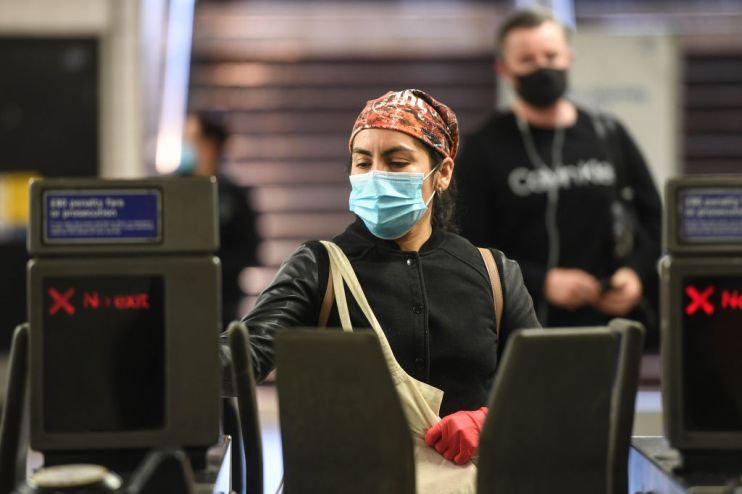Omicron Covid measures show our politicians still don’t know how to take risks

According to the government, the Omicron measures are “proportionate and responsible”. This may be true when compared to the pinnacle of pandemic command-and-control, when scotch eggs were served with every pint, outdoor gyms were taped up, and hikers were pursued across moors with drones. But make no mistake, with these new restrictions the state is once again snatching away our personal autonomy, and our ability to assess and manage risk.
The government argues it is taking a precautionary stance. Early data suggests Omicron is more transmissible and less lethal, but we cannot know for sure. And so a travel ban has duly been placed on ten African countries, and increased testing requirements for all international travel have been introduced. This means self-isolating for days while waiting for a PCR test or paying a fee of £100-150 for an accelerated test. Many will not be able to do either – with the inevitable knock-on effect on our travel industry.
But the most visible – and inconsistent – measure is the return of the mask mandate on public transport and in shops. Though the hospitality sector will have breathed a sigh of relief upon learning face coverings won’t be compulsory in their venues, it makes little sense that the rule applies to sandwich shops but not sandwiches in restaurants. It is designed to limit some risks but not others. People should be able to make those choices for themselves. If masks work then we are protected and should wear them in all venues; if they don’t they are unnecessary.
A recent paper from the CATO Institute noted that “the best available clinical evidence has mostly failed to show (facemask) efficacy”. That being the case, the precautionary approach is advice not instruction and, in turn, less likely to be polarising. Ultimately, face coverings are a prop to remind us we are in a crisis. By reintroducing them, the government can raise the level of public concern and increase the likelihood of compliance.
But the entire package of measures may amount to little more than unnecessary gesture theatre. This is not 2020. The former vaccines minister said recently that the UK may be the first country to go from pandemic to endemic, and our battle with Covid could soon mimic the seasonal flu. Dr Angelique Coetzee, one of the first doctors to identify Omicron, suggested that she had seen “nothing” to “warrant the extreme action” taken by the UK. Even if she’s wrong, extreme action cannot be the state’s instinctive response to new mutations.
Arguably the worst part of ‘Plan B lite’ is the new rules for self-isolation, meaning any “close contact” of case of Omicron will need to self-isolate for ten days, no matter what. People will now have to choose between a social December and a family Christmas. Those travelling home on the 20th, for example, will now be asking themselves whether they should avoid social contact after the 10th. Schools are cancelling nativity plays, and workplaces are reviewing event plans.
Working from home will increase, and businesses will find themselves without whole teams of staff. According to my colleague, Julian Jessop, another pingdemic could cost us £2bn; that expense will not be evenly distributed. Service workers, not policymakers with their comfortable desk jobs, will be most impacted. Surely a negative test would suffice to end isolation orders.
The jury is still out on Omicron. While we can be grateful that sitting on a park bench is still permissible, government needs to finally learn to present people with the risks and let them make sensible decisions.
